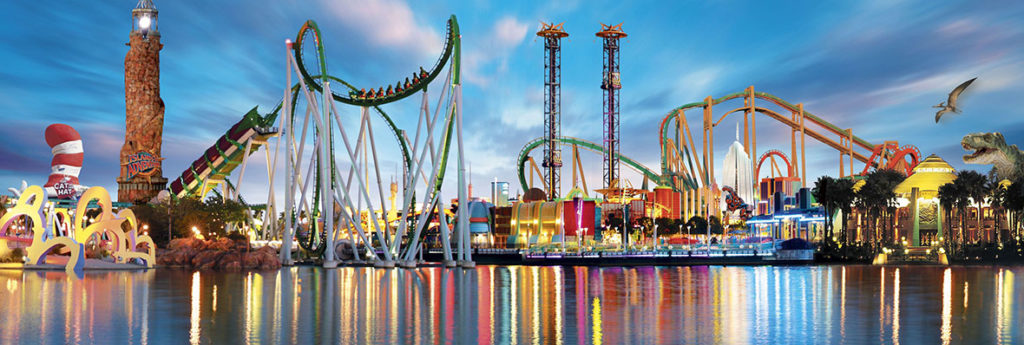Reopening Florida’s theme parks, among the world’s most visited attractions and one of the state’s biggest economic engines, could be a long process fraught with logistical and public health considerations, an industry executive told a task force charged with reopening the state for business.
“We are obviously thinking a lot about when and how to reopen. We’ve got multiple teams working on a number of different scenarios,” said John Sprouls, the chief administrative officer for Universal Orlando Resort.
Sprouls made his comments on the third day of meetings by Gov. Ron DeSantis’s Re-Open Florida Task Force, an assembly of dozens of leaders representing industry, education and government.
The sessions, conducted via telephone conference calls, were generally sparse on specifics but generous with platitudes meant to boost public confidence in any decision to lift “safer-at-home” orders, reopen business and return normalcy to daily life.
DeSantis again asserted that the state had “flattened the curve” on the global outbreak, noting that reality is far different from the scenario predicted by some models weeks ago.
Speaking to a working group focused on agriculture and healthcare, the governor said Florida had significantly less hospitalizations per capita and deaths per capita than states in the Northeast.
“I can tell you, there were a lot of dire predictions made. People were talking about Florida being the next Italy or New York,” DeSantis said.
During a meeting of a committee focused on the state’s tourism and other key industries, Sprouls said the state’s theme parks will have to reopen with small, limited crowds and that getting them fully reopened could take time.
Any decision to reopen, he said, would be guided by state and local officials, as well as by health considerations.
Around 85 million people visited theme parks in Orlando and Tampa in 2018, the most recent year available, according to an annual report put out by the Themed Entertainment Association and AECOM.
Theme park resorts are not just rides, but hotels, sit-down dining, fast-food, nightclubs, retail and TV and film production. All have different requirements for operating safely before the virus is contained, including logistical considerations for screening not only employees but visitors. And there is also the issue of taming long, serpentine lines not conducive to social distancing.
Then there are the rides themselves. Sprouls said it is possible that every other seat and ever other row in the cars will be vacant, but then there is the question of how often they are cleaned. Under normal circumstances, one guest gets on immediately after another gets off — how can that be done safely before the virus is contained?
As of Wednesday, the state had more than 28,000 confirmed COVID-19 cases, with total deaths nearing 900.

